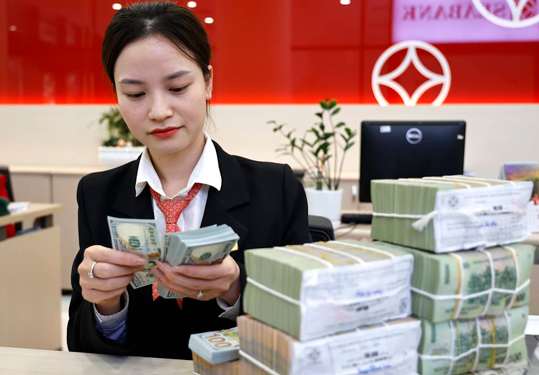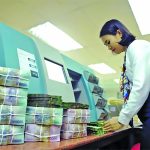Many businesses are facing a shortage of working capital and struggling to access credit facilities. This is especially true for small and micro-enterprises, who are unable to collect debts and are pressured by creditors. On the other hand, medium and large enterprises are dealing with bad debts, capital occupation, and the upcoming maturity of bond debts in the latter half of 2024.
Working Capital Shortage
Mr. Nguyen Le Quoc Tuan, CEO of Huong Que Food JSC, shared that profit margins in the food production industry are slim, at around 10%. Hence, prolonged accounts receivable negatively impact their business as they have to pay for raw materials upfront.
“For distribution through supermarkets, it takes 30-60 days for businesses to receive payment. If they want to get paid sooner, they have to offer a 1-2% discount, which creates a strain on cash flow. As for e-commerce platforms, the extended payment period imposed by the platforms results in cash being locked up, requiring businesses to have more capital to sustain their operations,” Mr. Tuan explained.

Many businesses are running out of working capital and lacking in operating funds, but they face challenges in accessing credit facilities. Photo: LAM GIANG
To address this issue, Huong Que Food JSC has shifted its focus to the export market and implemented a policy requiring customers to make a 50% deposit with full payment before delivery. “If a customer is unwilling to accept these terms, we would rather lose the sale than incur bad debt,” Mr. Tuan asserted.
The director of an HCMC-based company specializing in pepper and spices shared that this year, due to rising raw material prices, they have to pay 100% upfront for their purchases. However, when selling to supermarkets, they have to wait 45-60 days for payment, excluding the considerable amount of damaged and returned goods due to weak purchasing power. Selling to factories also entails a 30-45 day wait for payment, putting immense pressure on their capital.
“The illiquidity in the real estate market has led to banks undervaluing collateral, resulting in reduced lending limits while raw material prices continue to soar. As a consequence, our company has had to downsize our production scale. Meanwhile, speculators are pouring money into pepper, driving up prices excessively. If we had sufficient capital at the beginning of the crop, we wouldn’t be facing such difficulties,” the director expressed.
Mr. Luu Lap Duc, Director of Agri Duc Tien Co., Ltd. (Lam Dong province), a supplier of vegetables and fruits to stores and supermarkets, acknowledged that the lack of working capital is a pressing issue for businesses this year. With the economy still struggling, companies have to sacrifice profits to maintain their market share, resulting in reduced cash flow. Additionally, meeting the increasingly high demands of the market requires significant investments in modern machinery and equipment, leading to a slower-than-expected return on investment and a shortage of operating capital.
At a recent dialogue between banks and businesses in HCMC, some enterprises proposed more accessible financing solutions, especially for small, medium, and micro-enterprises. Mr. Nguyen Anh Tuan, representing Khanh Trang Seafood Processing Company (HCMC), inquired about the possibility of small businesses obtaining unsecured loans. He pointed out that most of their assets are already pledged as collateral for previous loans, leaving them with limited options for additional working capital.
Promoting Alternative Sources of Capital
To support businesses, the State Bank of Vietnam has extended Circular No. 02/2023 on debt restructuring and debt group maintenance until the end of 2024. This measure aims to alleviate repayment pressure, facilitate capital rotation, and enhance access to new loans, providing businesses with additional resources for investment, production, and business recovery.
Commercial banks have also launched preferential credit packages with low-interest rates and simplified procedures to make it easier for businesses to obtain financing. The Vietnam Maritime Commercial Joint Stock Bank (MSB) has introduced AI technology for unsecured business lending, with approval granted within four hours.
According to MSB, this lending method does not require collateral, and applications can be submitted entirely online with minimal documentation. As a result, small and medium-sized enterprises can access unsecured credit lines of up to VND 2 billion to address their working capital needs.
“This credit limit provides immediate support to businesses facing urgent order fulfillment or temporary capital imbalances. It also serves as a backup when limits at other banks have been reached or are earmarked for other purposes, or when payroll obligations arise,” said a representative of the bank.
However, many HCMC-based businesses shared that their primary challenge is not high-interest rates but the lack of capital to repay previous debts and supplement working capital for subsequent operations. Therefore, while interest rate support is beneficial, it does not address the root cause of the problem, which is the shortage of working capital.
The general director of a real estate company pointed out that real estate and construction businesses are struggling to obtain loans as they lack eligible collateral and are already burdened with bond and bank debts. These companies are desperate for any opportunity to raise capital, whether through the sale or pledge of assets, to ensure their survival.
Another critical issue faced by real estate businesses is the legal obstacles they encounter when executing projects. They urged the government to promptly address these challenges to enable the launch of new products, generate cash flow, and resolve debt-related issues.
Recognizing the difficulties faced by businesses, Mr. Nguyen Ngoc Hoa, Chairman of HUBA, shared that HUBA is collaborating with the State Finance Investment Corporation (HFIC) to establish a task force for handling and promoting a stimulus lending program. He also proposed that the government comprehensively address market challenges, including the depletion of investment capital and the decline in consumer demand.
Additionally, he suggested that the government develop mechanisms and policies to promote the development, attraction, and efficient operation of capital sources beyond bank credit and corporate bond channels.
The Chairman of HUBA also recommended that the State Bank of Vietnam consider implementing a comprehensive grace period for debts maturing in 2024, alleviating the burden of new debt obligations for businesses. He further urged commercial banks to empathize with businesses by reducing operating expenses and profit margins to minimize borrowing costs.
He emphasized the necessity of applying supportive policies universally to all loans before 2023, as well as consumer and personal loans, to effectively address the issue of stagnant debt in society.
“To survive during these challenging times, businesses need to cut costs, resolve pending issues, and optimize their resources,” Mr. Hoa advised. “While many sectors are struggling, there are also areas with potential for growth, such as social housing, healthcare, education, and infrastructure. Businesses should seize these opportunities to focus on research and projects with a forward-looking approach.”
(*) See the previous issue of NLD dated July 1, 2024, for more details
Businesses Scramble for Capital
While awaiting the resolution of obstacles and the provision of support, some businesses have taken initiatives to raise capital and sustain their operations. For instance, Hoa Binh Construction Group JSC recently completed the issuance of 73 million bonus shares worth VND 760 billion to settle debts.
Danh Khoi Group Joint Stock Company has approved a plan to issue 100 million private placement shares to professional securities investors, aiming to raise VND 1,000 billion. The proceeds will be used to pay tax debts, bond debts, and bank loans, as well as to acquire land funds and supplement working capital. Hai Phat Investment Joint Stock Company also intends to issue shares to raise VND 3,000 billion for debt restructuring and repayment of maturing debts.
Lack of Specific Regulations on Unsecured Lending
Regarding the proposal for unsecured lending to small and medium-sized enterprises, Mr. Nguyen Duc Len, Deputy Director of the State Bank of Vietnam – HCMC Branch, clarified that there is no regulation prohibiting commercial banks from providing unsecured loans to businesses. However, there are no specific guidelines on how to obtain such loans.
Unsecured lending carries inherent risks, as banks may lose capital if borrowers default on their loans. Therefore, each commercial bank will have its own assessment criteria, considering factors such as the customer’s relationship with the bank, credit score, and whether their cash flow is entirely managed by the bank.
Overcoming Challenges in Dealing with Bad Debts
In the newly passed Revised Securities Law, securities companies (SCs) no longer have the privilege to hold collateral. Therefore, SCs need to recognize that debt collection is their responsibility, and they should be extremely strict in assessing borrowers, ensuring compliance with principles, procedures, and conditions before granting loans.
Deputy Governor: Extension of Circular 02 Agreed, Potentially Extendable in Q1
In the face of challenging economic conditions, the weak market demand has affected customers’ ability to repay their debts, prompting banks to recommend extending Circular 02 for an additional period of 6 months to 1 year.




















